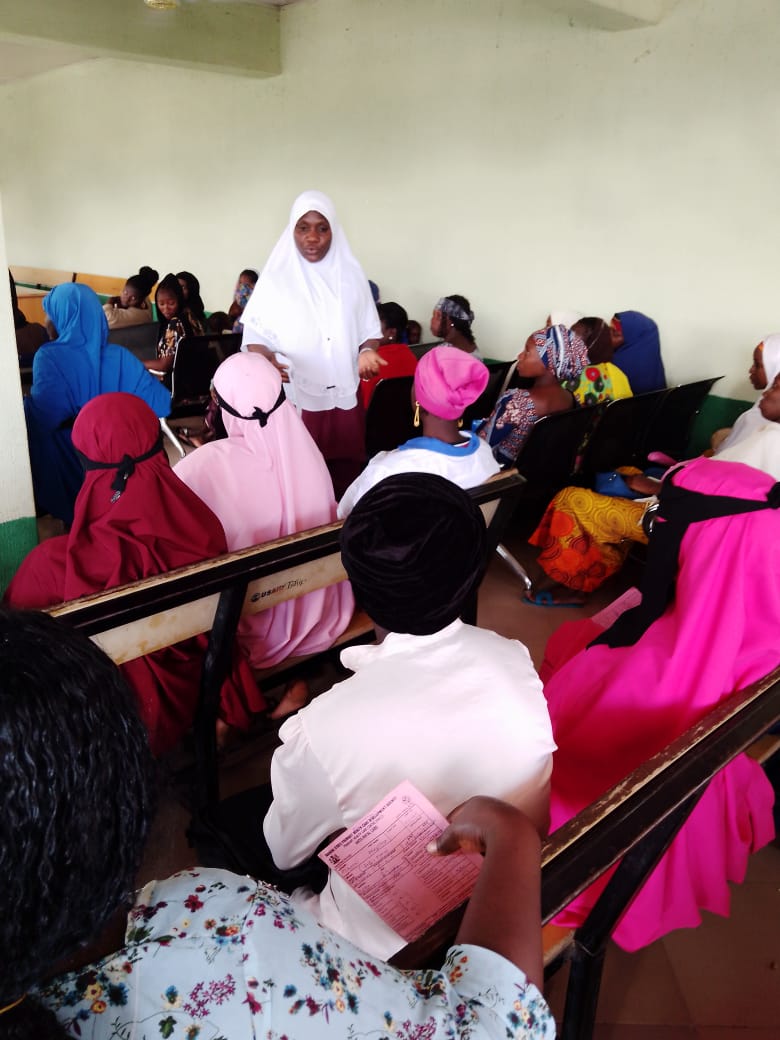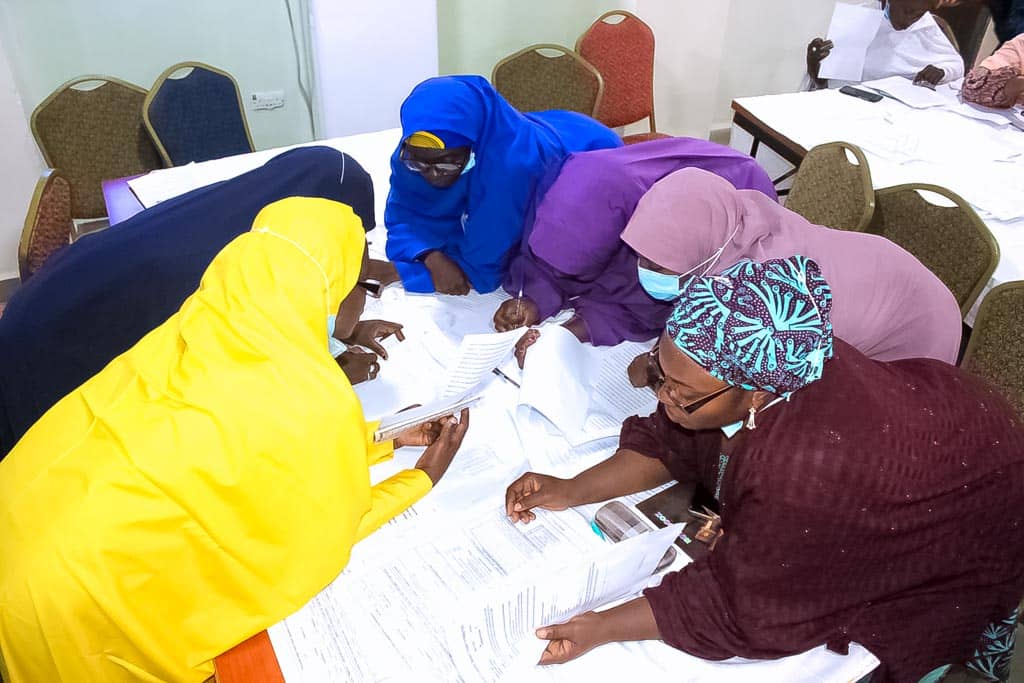Operationalizing the Guiding Principles of the USAID Strategy to Address Gender-Based Violence (GBV): WI-HER’s work in GBV Prevention and Response in Nigeria
By Fatima Saeed, WI-HER Senior GBV Technical Advisor

USAID’s global strategy to end gender-based violence (GBV) is a guiding framework for all USAID partners working to end GBV globally. It also complements the recently-released National Plan to End GBV. WI-HER’s work to address GBV in Nigeria and other countries is rooted in and inspired by the guiding principles of USAID’s strategy and reflects similar objectives and pillars as the new US Government’s National Plan.
The US strategy to prevent and respond to GBV seeks to advance equity and inclusivity and support comprehensive approaches to address GBV globally. At the heart of the strategy are guiding principles to end GBV, which provide a holistic framework of concerns to keep in mind as we operationalize efforts to address GBV. Each principle—human-rights informed, intersectional, survivor-centered, inclusive, life-course lens, and locally-led—is critical in building a program that is effective, responsive to the needs of survivors, and adds value to the life of both survivors and implementers. Furthermore, these principles are interdependent, and a program that integrates one without paying attention to the other will not optimize its potential.
Here, we briefly discuss how WI-HER’s work on the USAID’s Integrated Health Program (IHP) in Nigeria has amplified and operationalized the guiding principles captured in the US global strategy to end GBV through a GBV Grants under Contract (GUC) mechanism. The GUC mechanism is a critical part of our work in GBV prevention and response, as it supports local organizations in the development of comprehensive packages that are related to GBV care, treatment, and prevention.

WI-HER implemented the GUC mechanism in partnership with local grantee partners, Center for the Comprehensive Promotion of Reproductive Health (CCPRH) and Society of Gynecology and Obstetrics of Nigeria (SOGON). Under this mechanism, WI-HER and its partners conducted GBV facility-level training across IHP-supported facilities in Bauchi, Kebbi, and Sokoto states in 2022. This work strengthened the capacity of more than 1,500 frontline healthcare workers (HCWs) and the primary healthcare system to respond to GBV cases through cascade training workshops on high-quality and appropriate survivor-centered care. Specifically, the GUC integrated capacity building on screening to identify survivors and providing appropriate clinical care to them; set up a system of referrals for additional survivor services like shelter, psychosocial support, legal, economic, etc.; and built a data management system on GBV nationally through documentation and reporting of GBV through the Federal Ministry of Health (FMoH) and Federal Ministry of Women’s Affairs and Social Development (FMoWASD).
Human Rights-Informed: The training curriculum used for the GUC, titled Caring for women subjected to violence: A WHO training curriculum for health care providers, wasadapted and contextualized by IHP and WI-HER to the Nigerian context from the World Health Organization’s (WHO) curriculum, in partnership with the Nigerian FMoH. This curriculum applies a human rights-based approach to responding to the needs of GBV survivors and sensitizes healthcare workers to respond to the needs of survivors in a manner that upholds their inalienable human rights. For instance, the trainers from CCPRH and SOGON and the WI-HER staff coached healthcare workers on the use of the LIVES (Listen, Inquire, Validate, Enhance Safety and Support) approach to cater to the needs of survivors. This approach promotes and protects the human rights of survivors by ensuring that their dignity is upheld at all times and that they receive services in a compassionate and respectful manner.
Intersectional: The GBV data management system set up by the FMoH and State governments in Nigeria with support from IHP—to record GBV cases at the facility level and generate GBV prevalence data at the national level—applies an intersectional approach to data management. It gathers data on different markers, such as sex, age, and other characteristics, to build a comprehensive picture of the prevalence of GBV and its underlying causes.
Inclusive: The training provided to healthcare workers under the GUC mechanism sought to reimagine how male survivors receive care by building an understanding among healthcare workers of the forms of violence experienced by men and boys. The trainings built understanding among healthcare workers about their obligations to provide appropriate care and services to male survivors of violence.
Life Course Lens: Healthcare workers have been sensitized to identify GBV cases, provide referrals to survivors, and identify and screen for trauma and repeated victimization, as well as provide appropriate assistance to survivors of different ages.
Survivor-Centered: The healthcare workers have, through this program, implemented a referral system that provides survivors with access to legal, economic, and other services based on their informed consent and choice. This referral system has led to more survivors seeking justice and exploring redress mechanisms.
Locally-Led: Our national partners, CCPRH in Bauchi and Sokoto and SOGON in Kebbi, led the cascade training program, working in partnership with community-level stakeholders and influencers to leverage a shared understanding of the GUC mechanism and its objectives, generate buy-in within the communities where the primary healthcare facilities are located, and increase the uptake of services available through primary healthcare facilities by raising awareness of the services.
WI-HER’s work under the GBV GUC mechanism in IHP Nigeria provides a brief glimpse of how the guiding principles of the US GBV strategy can be integrated into GBV program design and implementation. As the GBV GUCs mechanism is expanded and implemented in other states, we will continue to record and share learnings on how the US strategy’s guiding principles have evolved and operationalized to meet the needs of survivors in Nigeria.
To learn more about our work on GBV, please visit our website.